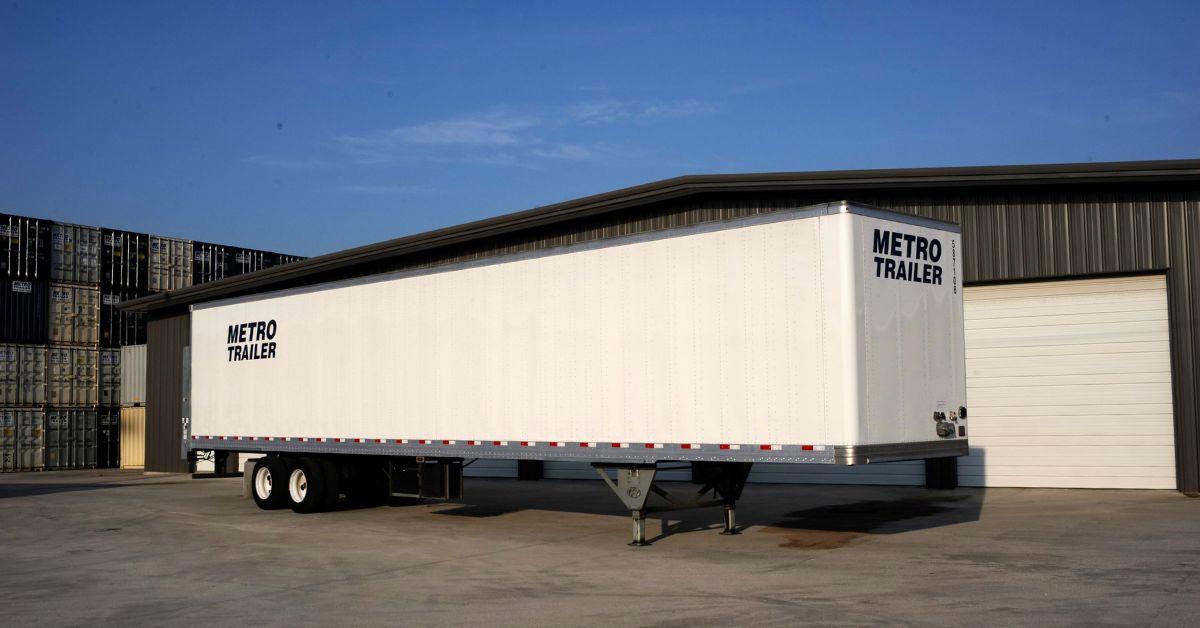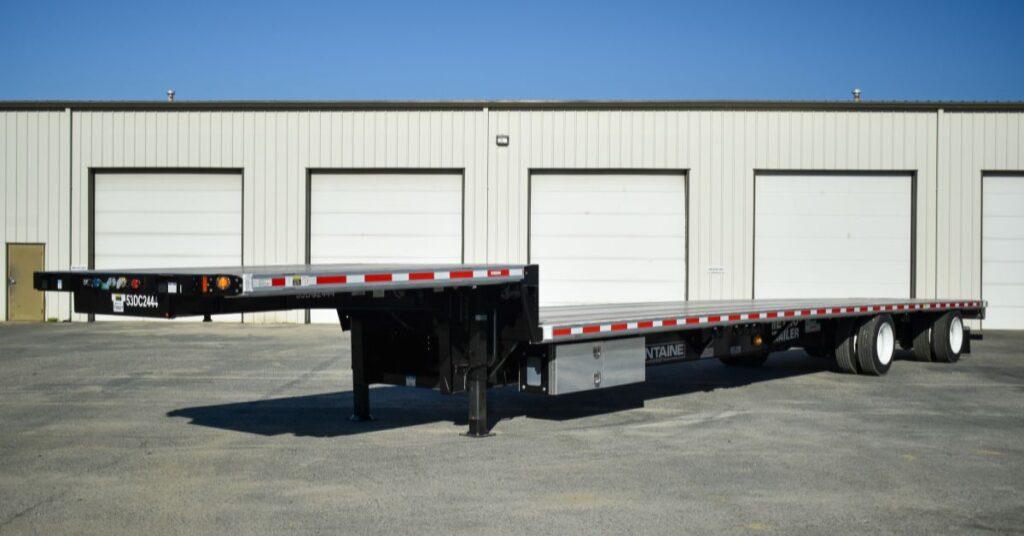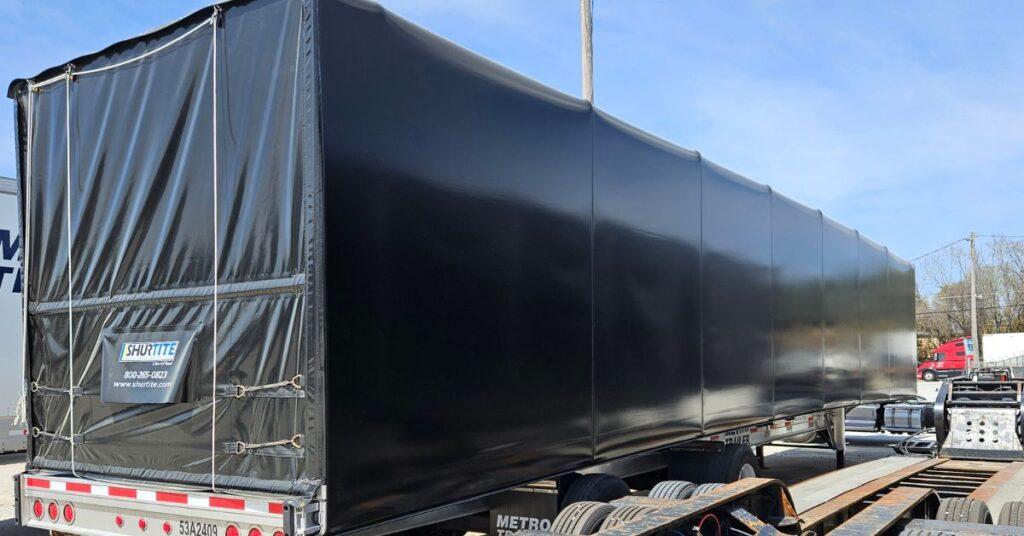
How To Choose a Commercial Trailer Rental for Your Business
Choosing the right commercial trailer rental opens up a world of possibilities for businesses that want to enhance operations and optimize costs. Imagine a local bakery expanding its delivery network, a construction company managing its equipment logistics more efficiently, or an event planning business transporting supplies seamlessly across locations. Each scenario highlights the flexibility and cost-effectiveness that the right trailer rental can provide.
With a variety of trailers available, ranging from flatbeds to refrigerated units, it’s important to understand the features and capacities of each type to determine what they can do for you. Additionally, considering logistical factors like licensing requirements, insurance, and rental contracts can make a significant difference in the overall experience. Delve into the details to find a rental solution that exceeds your business expectations, setting the stage for growth and success.
Identify Your Needs
Assess the type of cargo you plan to transport, be it perishable goods, heavy machinery, or event supplies. Consider the volume and weight of your typical load, as this will direct you to the appropriate trailer size and type. For example, refrigerated trailers are crucial for businesses dealing with temperature-sensitive items, while flatbeds are ideal for oversized loads.
Take stock of how often you will use the trailer and factor in seasonal peaks if applicable. Clarifying these needs helps you determine not only the type of trailer but also the rental duration, ensuring the investment directly aligns with your operational demands. With a clear understanding of your needs, you can make a decision that optimizes both functionality and cost.
Research Different Trailer Types
The market offers a wide array of trailer types, each designed for specific purposes. Flatbeds, box trailers, refrigerated units, and lowboys are just a few options available. What does each trailer offer in terms of space, protection, and load capacity?
Flatbed trailers provide versatility for oversized loads, while box trailers offer security against weather and theft. Refrigerated trailers maintain the necessary temperature for perishables, which is critical for food and pharmaceutical transport. Lowboys handle heavy equipment with ease due to their lower height. Researching these options allows you to match the trailer to your business’s logistical requirements.
Consider Logistical and Legal Requirements
Speaking of requirements, double-check the licensing you need for the type of trailer you intend to rent. Some trailers may require special permits or driver certifications. Also, ensure compliance with weight and dimension restrictions imposed by local regulations, which vary by location and trailer type.
Confirm that the rental agreement includes comprehensive coverage, or explore additional insurance options for peace of mind. By understanding these requirements, you can avoid potential legal pitfalls and ensure smooth operations.

Evaluate Rental Terms and Conditions
Diligently review the rental agreement to understand its terms and conditions. Examine the rental period options and assess flexibility in case your needs change, and look for clauses related to damage, maintenance, and breakdowns. You should also determine who is responsible for repairs and what support the trailer rental company offers.
Check for hidden fees, such as late return penalties or additional charges for exceeding mileage limits. Clarity on the terms ensures you are prepared for any eventualities. Transparent rental terms also help in comparing different providers, enabling you to select one that offers the most favorable and predictable costs.
Assess the Condition and Maintenance of the Trailers
If possible, examine the trailer you want to rent for any signs of wear and tear, checking the tires, brakes, and lights to confirm they meet safety standards. Ask the rental company about their maintenance schedule and policies. Regular maintenance ensures the trailer’s reliability and reduces the risk of breakdowns during use.
A well-maintained trailer reflects the rental company’s commitment to quality and customer satisfaction. Opt for companies that offer thorough checkups and quick responses to maintenance issues.
Prioritize Safety Features
Trailer safety needs to be your top priority. Look for trailers equipped with essential safety features such as anti-lock braking systems (ABS), stability control, and proper lighting. Enhanced safety features not only protect your cargo but also the driver and other road users.
Additionally, trailers with advanced tracking systems can provide real-time data on location and condition, offering peace of mind regarding cargo security. Just be sure to verify that the safety features comply with industry standards and regulations. Investing in a trailer with robust safety measures can mitigate risks, reduce liability, and foster a culture of safety within your business.
Compare Pricing and Value
Pricing remains a significant factor, but focusing solely on the cost can be misleading. Evaluate what each rental package includes and weigh its value against the price. Think about aspects like unlimited mileage, maintenance services, and customer support.
Compare quotes from multiple rental companies to gain a comprehensive understanding of market rates. Be cautious of deals that seem too good to be true, as they might lack essential features or involve hidden charges. Choosing a rental that offers the best value rather than just the lowest price often results in smoother operations and fewer unexpected expenses.

Seek Recommendations and Reviews
Harness the power of word-of-mouth and online reviews to make an informed decision. Connect with other business owners in your industry and ask about their experiences with trailer rentals. Insights from peers can provide practical advice and highlight potential pitfalls, while online reviews on trusted platforms offer a broader perspective on a rental company’s reputation and customer service.
Pay particular attention to comments about reliability, honesty, and how issues were resolved. A company with consistently positive feedback is likely to provide a satisfactory rental experience. Leveraging these insights equips you with additional knowledge to choose a rental company that aligns with your business values and needs, fostering a productive partnership.
What Next?
Choosing the ideal commercial trailer rental for your business can be a catalyst for long-term success and operational excellence. Beyond meeting immediate logistical needs, the right choice fosters a ripple effect that enhances your overall business performance.
Imagine the impact of consistently delivering products on time. A well-chosen trailer rental also offers scalability that allows your business to adapt swiftly to market demands and seize new opportunities. By integrating this flexibility into your operations, you position your business for sustainable growth and resilience in a competitive landscape.
As you weigh your options, consider the broader implications of your rental decision on your business strategy. Utilize the insights we’ve shared as a launchpad to make the choice that best suits your business. Now is the time to take action, explore your options, and choose a partner that aligns with your vision for success.